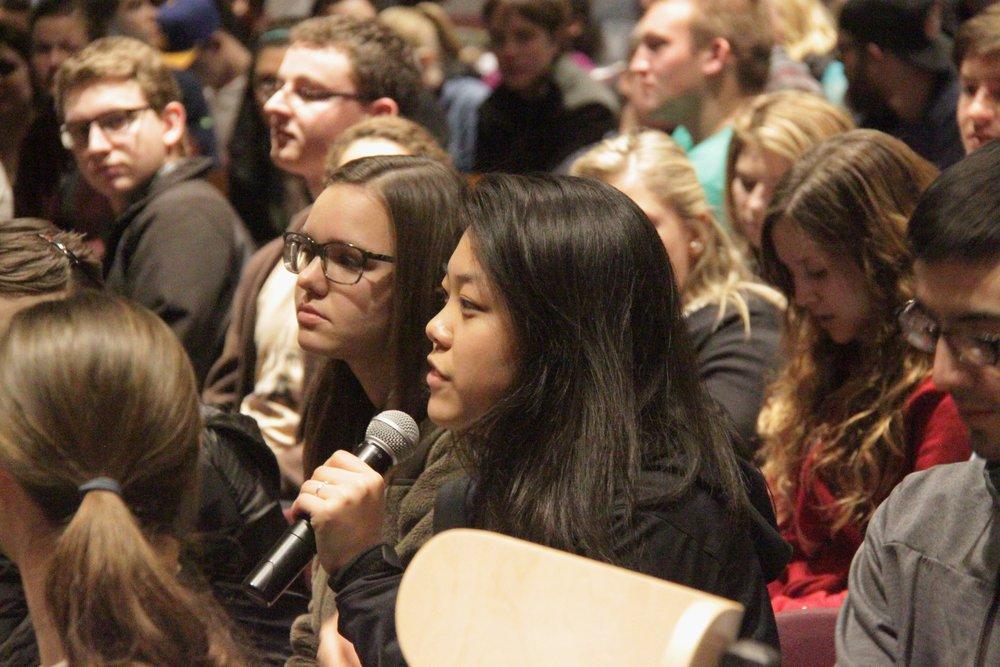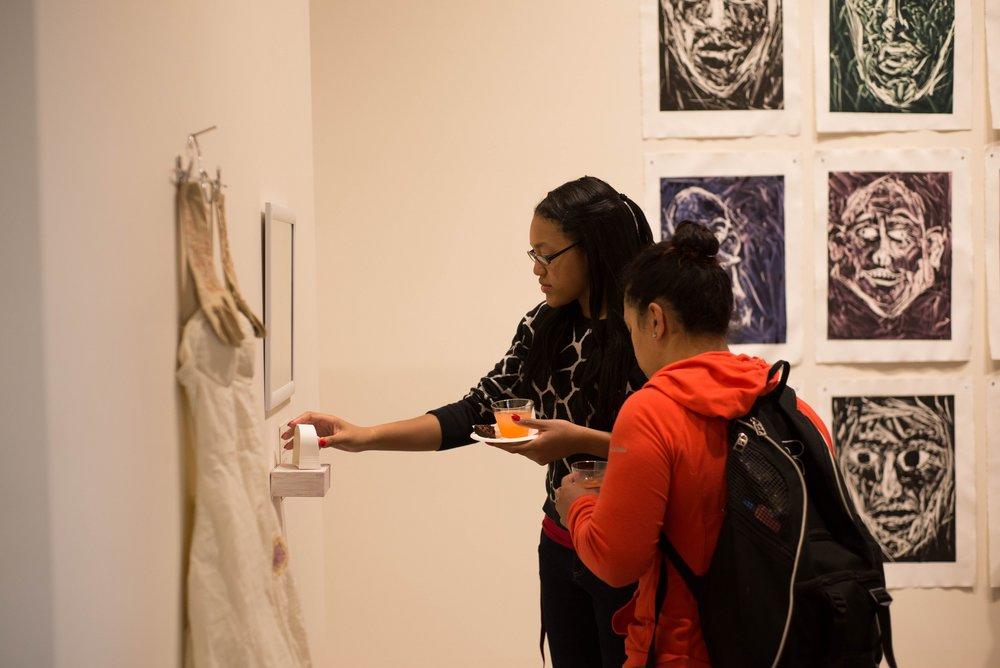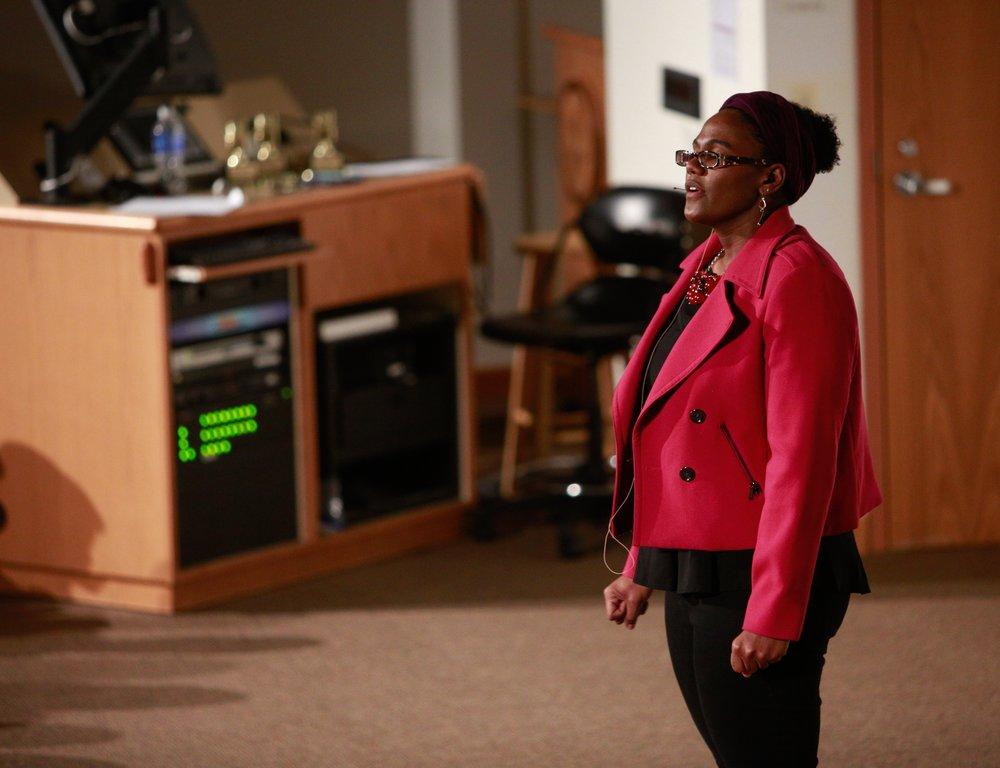Dozens of students filled the HUB multipurpose room to attend the “God and Guns” panel on Feb. 17. Lead by world languages professor Lindy Scott, sociology professor Stacy Keogh-George and political science professor Julia Stronks, the panelists discussed gun control in the United States.
Each panelist gave a different perspective on gun control. Scott gave a brief overview of the biblical understanding of how to respond to conflict.For the first three centuries Christians were largely pacifists following Jesus’ teachings. When joining the Roman army, soldiers had to swear allegiance to a Roman god or affirm the deity of the emperor. Because of this, Christians would not join the army, Scott said. Today soldiers do not have to swear allegiance to any God. This begs the question of whether or not Christians should participate in the military, he said.

“Although they were pacifists, generally, in the New Testament, there is a conception of the society,” Scott said. While Christians were not active in the military in those times, they were still active members of society, Scott said.
In Romans 13, the apostle Paul writes how the diaconates are to fight against evil, which leaves Paul to question what God wants from Christians. When Jews were in captivity in Babylon, they sought to leave but were told to find the shalom of Babylon. Followers of Christ should bring health to society, Scott said.
“It’s a tricky balance,” Scott said. “How do people use their faith, practice their faith in ways to heal their country?”
Scott said that it is not necessary for believers to arm themselves if they believe in the power of God. The Bible does not talk about the Second Amendment but it does reference swords. In one case, Jesus tells his followers to take the swords, Scott said. In another mission trip, he tells them to leave the swords. The purpose of the swords is an open question. A Christian response to the political issue of gun control, which usually represents the two extremes in favor or not in favor of the second amendment, is compromise.
Misikir Adnew, a freshman from Ethiopia attended the panel. In Ethiopia, gun control is not really discussed, Adnew said. She does not hear a lot of stories of people buying guns for individual use, except for hunting, as guns are largely used only in the military.
Keogh-George spoke about guns in society and provided a PowerPoint with statistics on gun ownership. The 2010 general social survey shows that 34 percent of United States citizens own a firearm. When asked why they owned a gun in a 2013 survey, 48 percent polled said for protection, 32 percent said for hunting and 7 percent said for target/sport shooting, according to the presentation.
“All of what was discussed was as shock to me to learn because it’s a huge contrast from where I’m from,” Adnew said.
Keogh-George also provided statistics of gun violence, including mass shootings. A mass shooting is defined as a single shooting incident which kills multiple victims. There were 372 mass shootings worldwide in 2015 which led to 475 deaths and more than 1,800 people injured, Keogh-George said.
“That’s pretty scary,” Keogh-George said. “If that number doesn’t scare you that’s probably a product of desensitization we get from the media because we’re hearing about this so often. That’s a pretty significant number.”
There is a disproportionality when the percentage of guns owned by U.S. citizens is compared to the percentage of the U.S. in the global population. The U.S. owns 46 percent of the world’s guns while making up 4 percent of the world’s population.
“Our country is founded on the right to bear arms,” Keogh-George said. “That’s deeply, deeply embedded in our culture and ideology.”
People perceive gun control as a policy to strip them of their guns. That’s not the case, Keogh-George said. Instead, gun control policy focuses on how guns can be used in a safer way in our country.
Senior Nicholas Gosselin said he has always felt like gun control is a hot topic.
“I agreed with most of what they said but my only questions came around when they were talking about stats and the fact that this is a huge problem because the numbers were low,” Gosselin said. “It seemed like for a large group of people, not even a full percentage of people, are actually hurt or harmed by guns…So why is the topic so controversial as it is?”
Stronks spoke about the Second Amendment. In the colonies, Native Americans and people with mental instabilities were not allowed to have guns. Citizens carried guns because of the rural nature of the colonies, Stronks said. There was no law enforcement, so instead citizens had the responsibility to protect the community.
Stronks read the second amendment which states, “A well-regulated militia, being necessary to the security of a Free State, the right of the people to keep and bear Arms, shall not be infringed”.
The language of the Second Amendment has sparked a debate of whether or not U.S. citizens should own guns, considering that we no longer live in a country with a militia, Stronks said.
“We [haven’t had] very much Supreme Court guidance on how to interpret the Second Amendment for 200 years,” Stronks said.
In the 1970s and 80s as a result of increased violence, partially due to gang violence, individual states started to pass fairly restrictive gun control laws, Stronks said. In 1975 in Washington, D.C., officials passed a law in which residents could only be granted the right to purchase a gun through the approval of the police commissioner.
“I have no clear cut view of gun control just because I’m not that exposed to it back home,” Adnew said. “I don’t want to think the U.S. is more violent but I think that maybe in the U.S. people are more focused on individual rights.”
Although Supreme Court Justice Scalia said that it is an individual right to own guns, he also said that no rights are absolute, Stronks said. States across the country have laws that reflect their views on gun control. States are responsible for the safety, health and welfare of the people, not the federal government. That is why individual state laws regarding gun control are different.
“As a person of faith I believe…in responsible gun control,” Stronks said.
Contact Krystiana Morales at kmorales17@my.whitworth.edu









 Spokane?
Spokane?